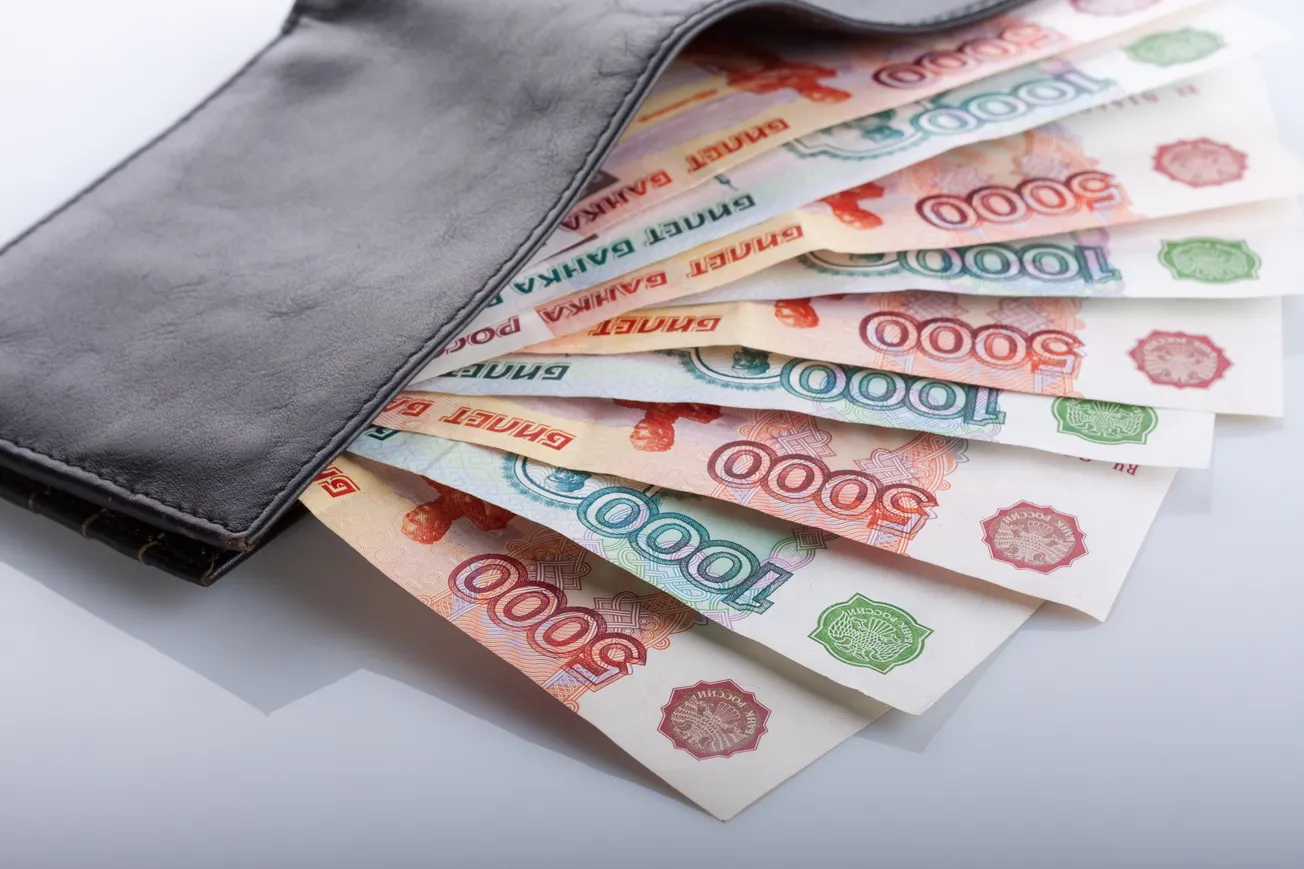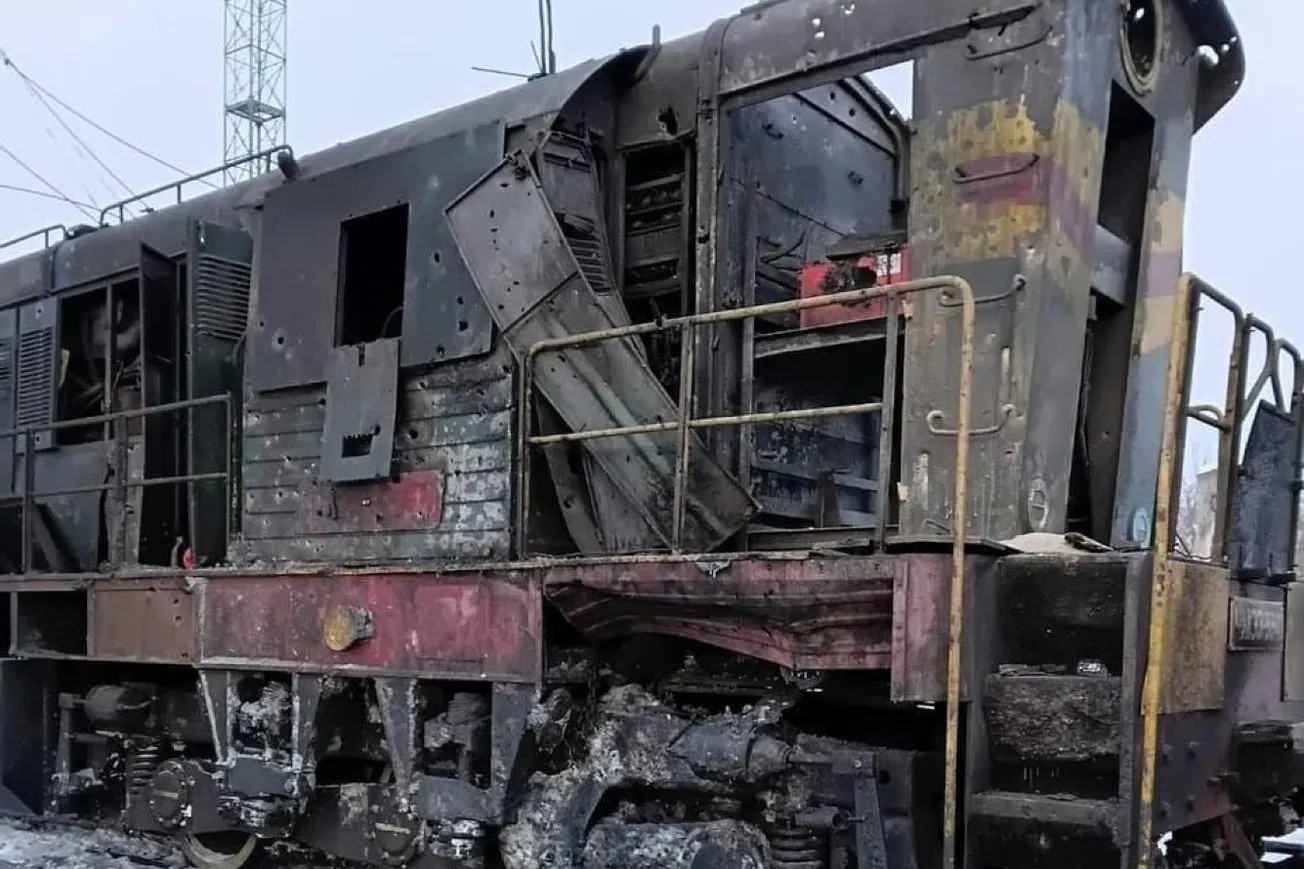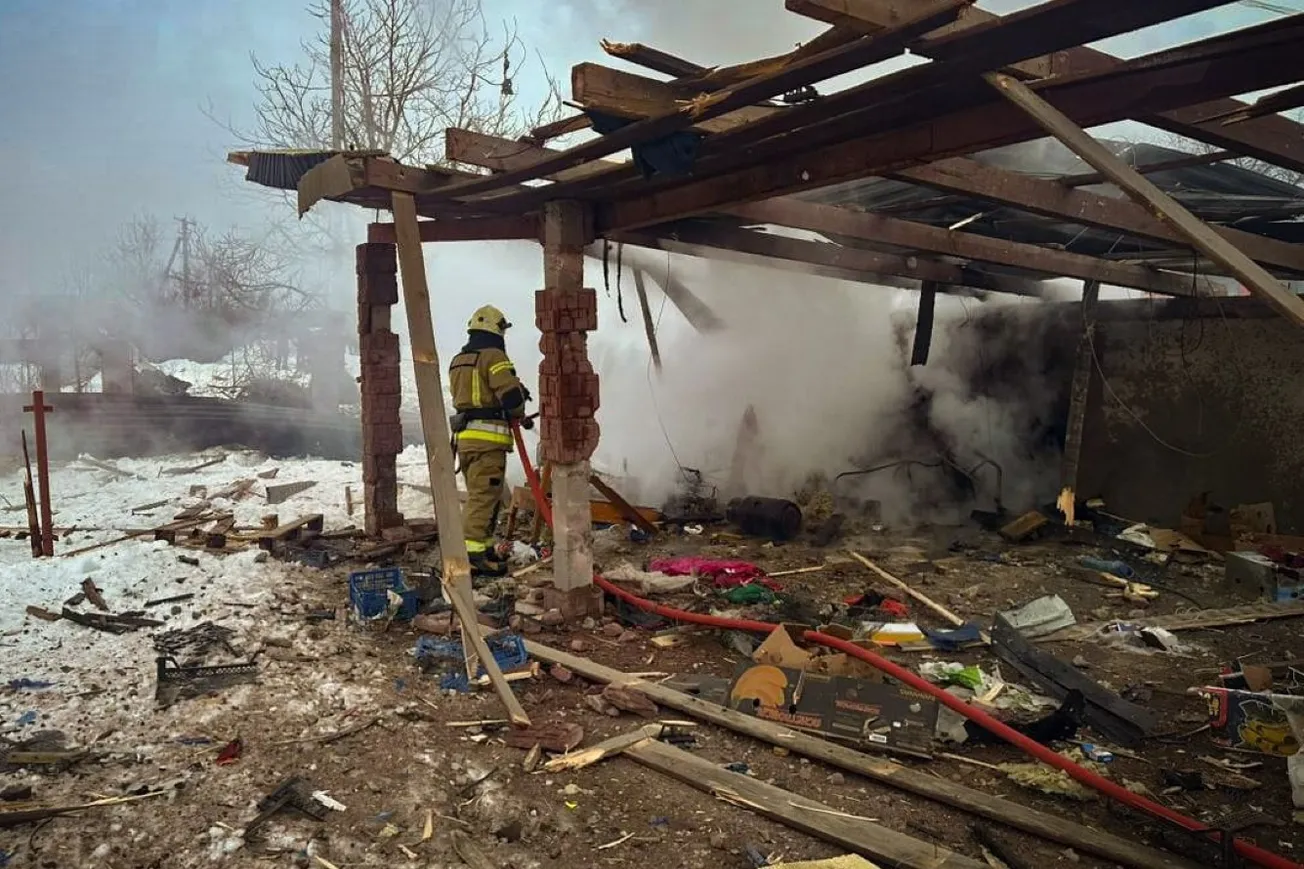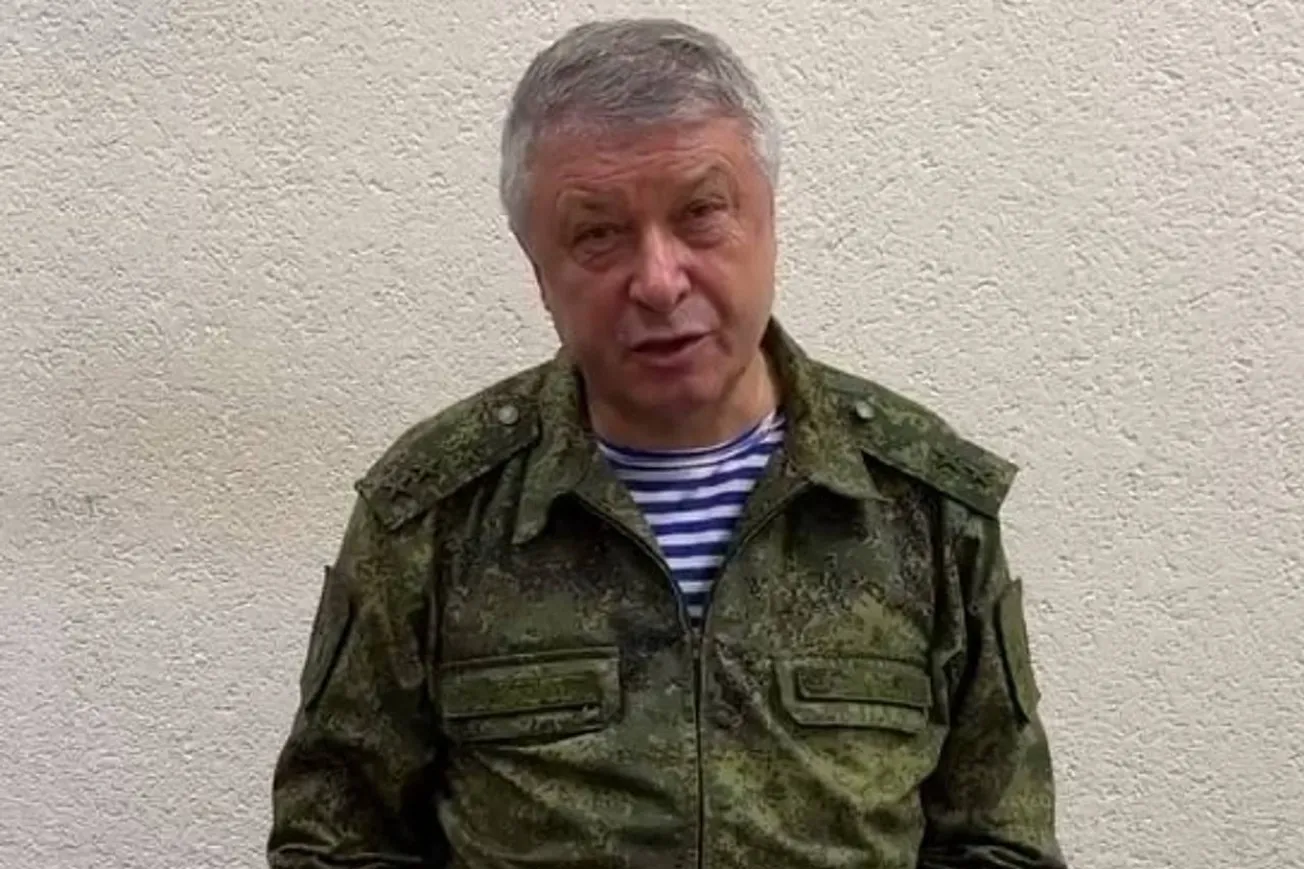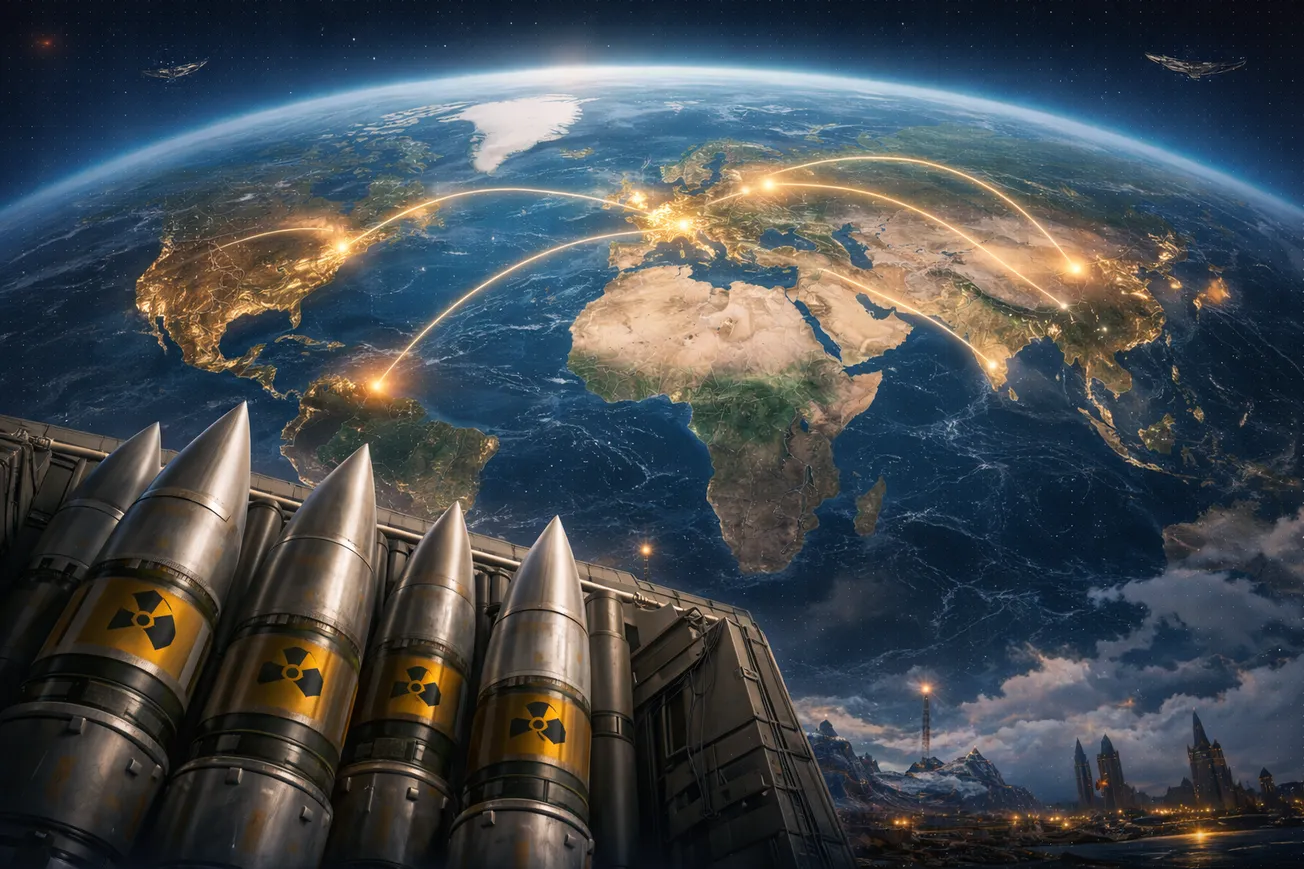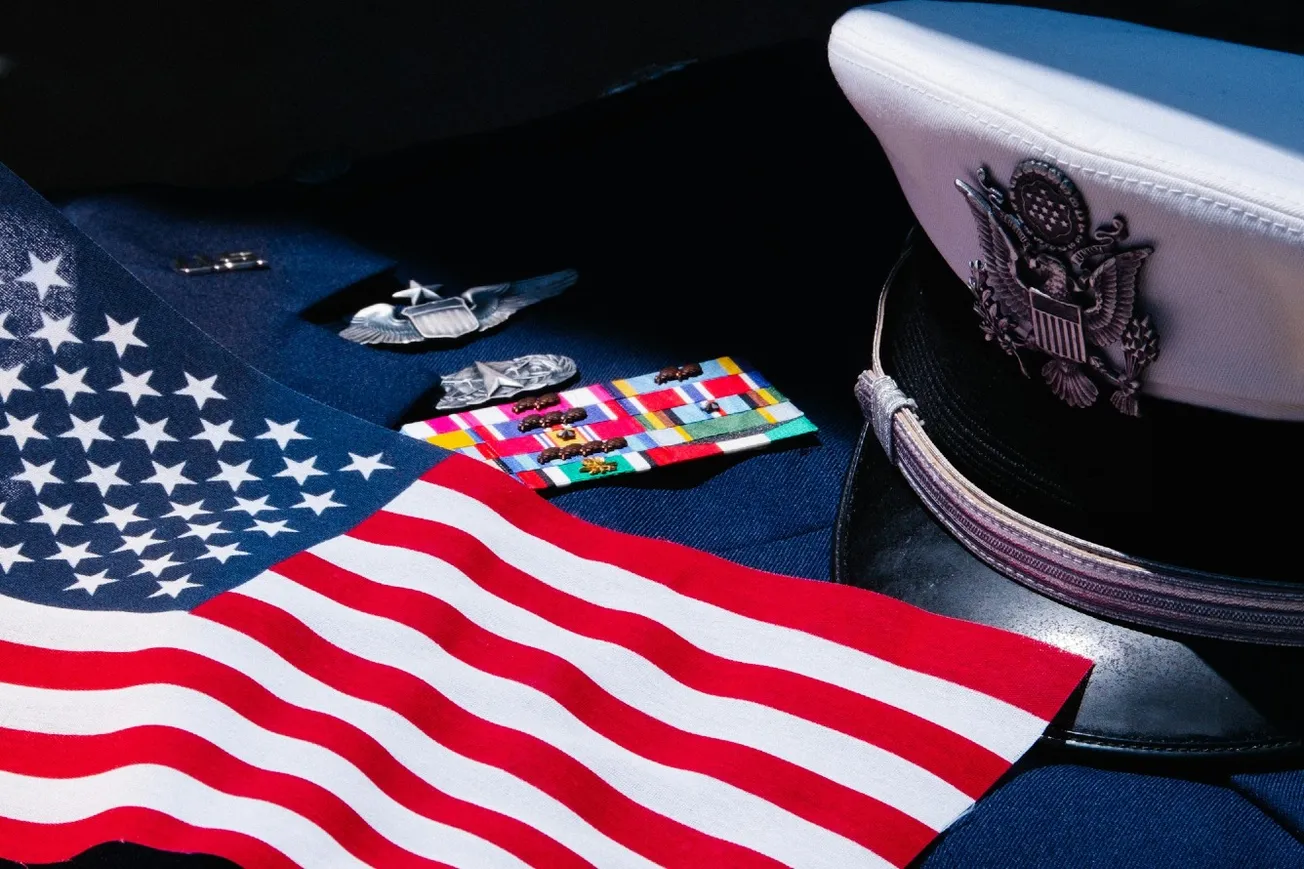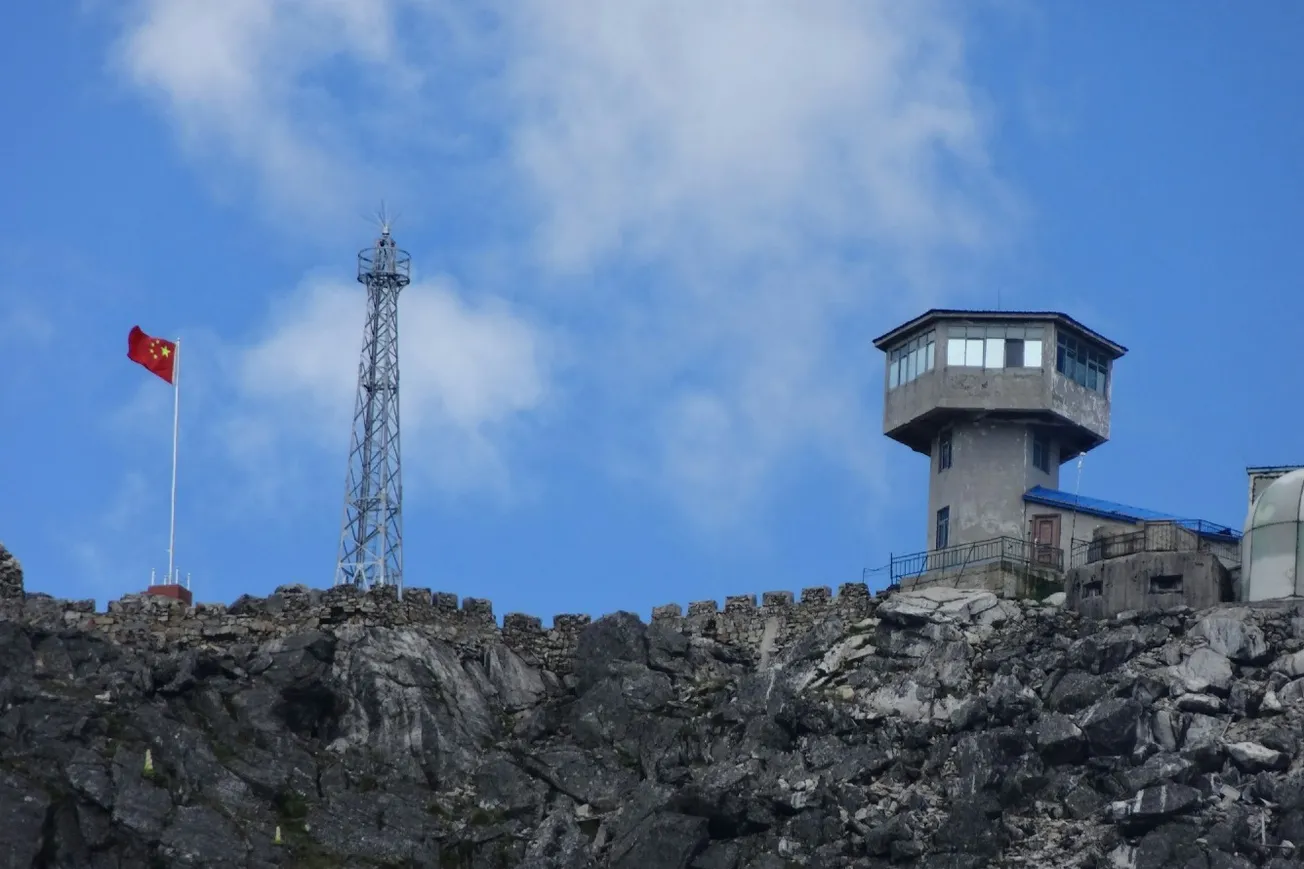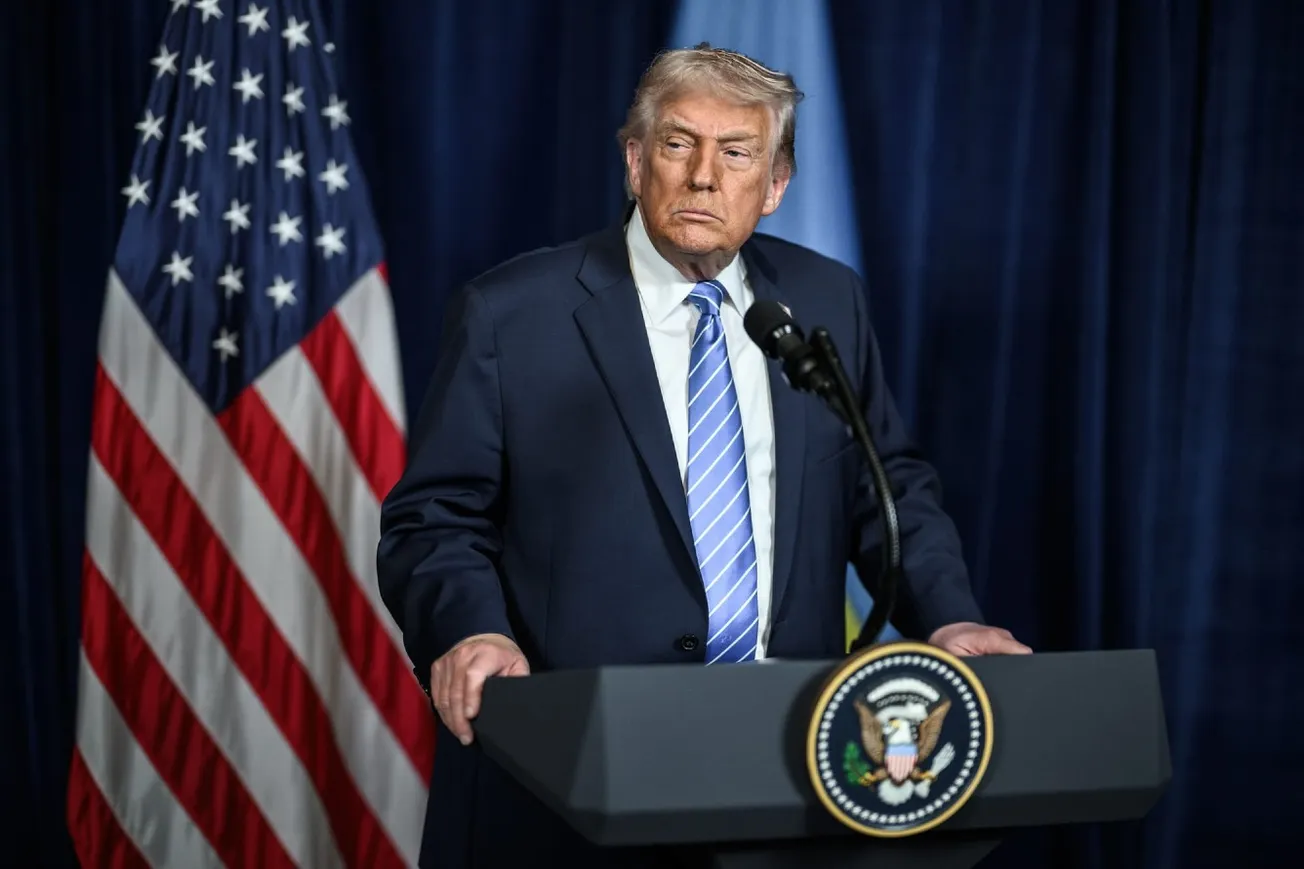Russia’s central bank has raised its key interest rate 3.5 percentage points to 12 percent, after the rouble slid past 100 against the dollar for the first time since March last year.
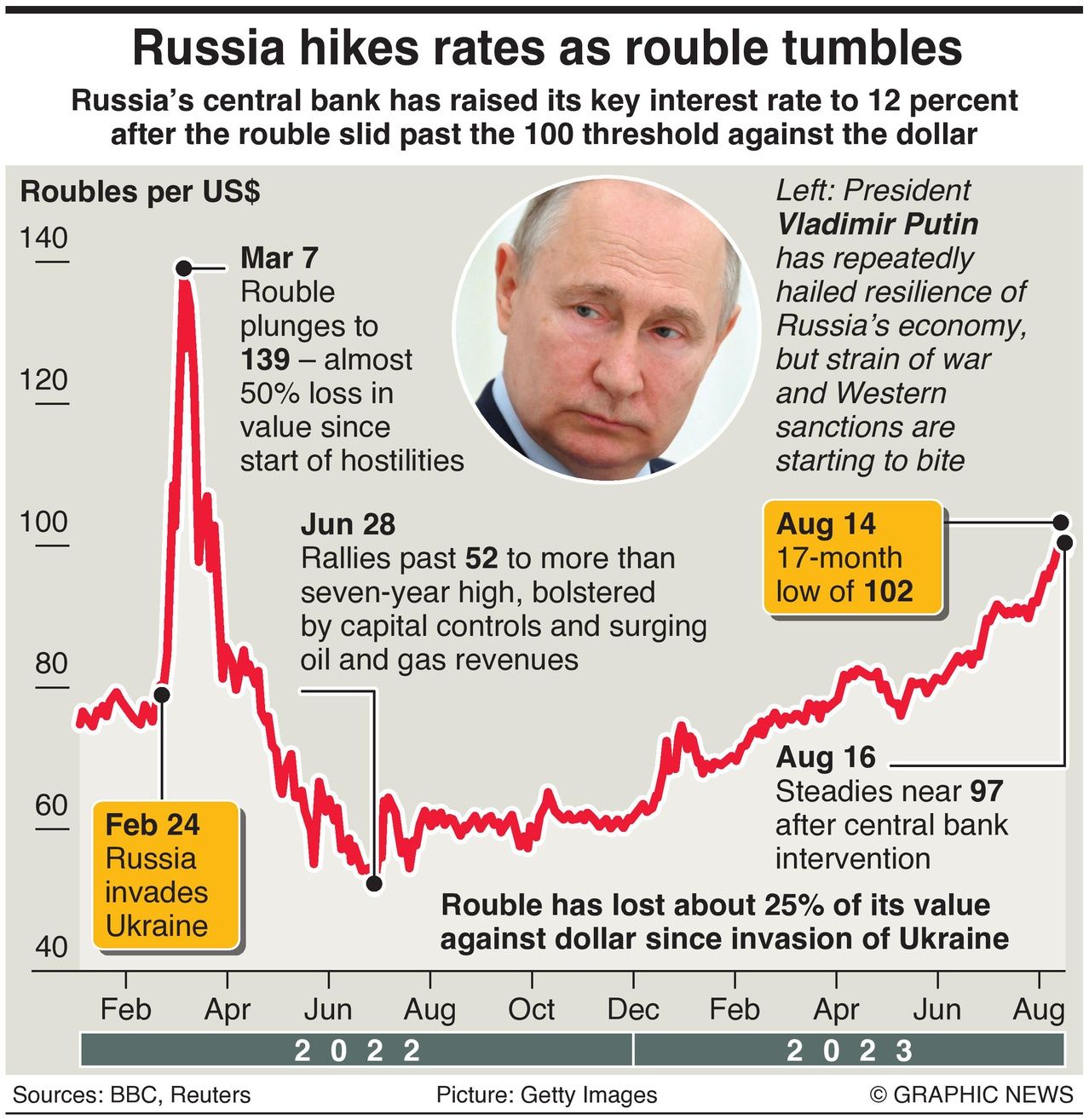
The Kremlin said loose money policy was to blame for the weakening rouble, which has also been dragged down by the impact of Western sanctions on Russia's balance of trade as military spending soars.
The rouble has raced a turbulent course since Russia invaded Ukraine in February 2022, slumping to a record low before recovering to a more than seven-year high a few months later, supported by capital controls and surging export revenues.
While President Vladimir Putin has repeatedly hailed the resilience of Russia's $2 trillion economy, the strains of fighting the biggest land war in Europe since World War Two and what the West casts as the toughest sanctions in history are starting to bite, Reuters said.

